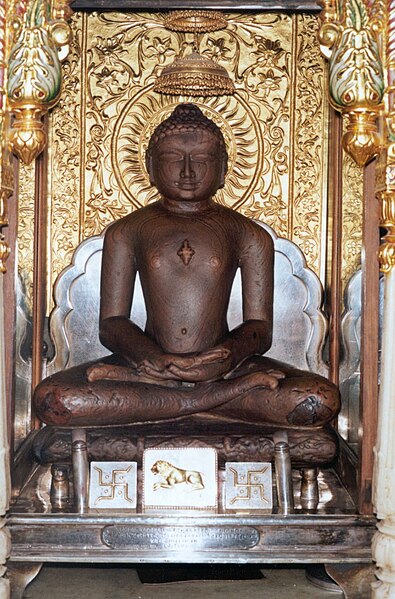In Indian religions, a rishi is an accomplished and enlightened person. They find mentions in various Vedic texts. Rishis are believed to have composed hymns of the Vedas. The Post-Vedic tradition of Hinduism regards the rishis as "great yogis" or "sages" who after intense meditation (tapas) realized the supreme truth and eternal knowledge, which they composed into hymns. The term appears in Pali literature as Ishi; in Buddhism they can be either Buddhas, Paccekabuddhas, Arahats or a monk of high rank.
A late 18th century painting of Saptarishi and Manu from Jaipur, Rajasthan.
A temple relief showing a Rishi.
A statue of a Ruesi at Wat Suan Tan in Nan, Thailand
Indian religions, sometimes also termed Dharmic religions or Indic religions, are the religions that originated in the Indian subcontinent. These religions, which include Buddhism, Hinduism, Jainism, and Sikhism, are also classified as Eastern religions. Although Indian religions are connected through the history of India, they constitute a wide range of religious communities, and are not confined to the Indian subcontinent.
"Priest King" of Indus Valley civilisation
The so-called Pashupati seal, showing a seated and possibly ithyphallic figure, surrounded by animals.
A statue of Gautama Buddha from Sarnath, Uttar Pradesh, India, 4th century CE.
The idol of Mahavira, the 24th and last Tirthankara of Jainism.







